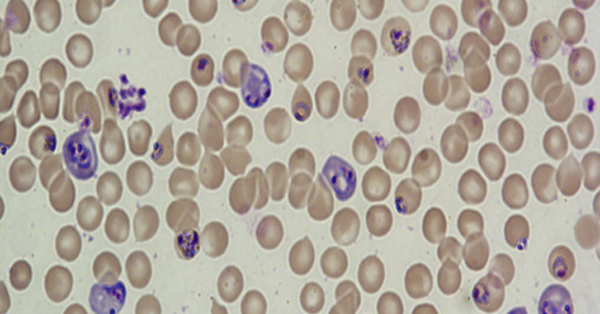
Release: NIH study may help explain why iron can worsen malaria infection
Researchers identify protective role of iron export protein and its mutation

Red blood cells infected with malaria parasites (purple).
Image source: Zhang DL, NICHD/NIH
Image source: Zhang DL, NICHD/NIH
Researchers at the National Institutes of Health have a possible explanation for why iron can sometimes worsen malaria infection. By studying mice and samples from malaria patients, the researchers found that extra iron interferes with ferroportin, a protein that prevents a toxic buildup of iron in red blood cells and helps protect these cells against malaria infection. They also found that a mutant form of ferroportin that occurs in African populations appears to protect against malaria. These basic findings, published in Science, may help researchers and healthcare officials develop strategies to prevent and treat malaria infections, which numbered nearly 216 million worldwide in 2016.





















.png)












No hay comentarios:
Publicar un comentario